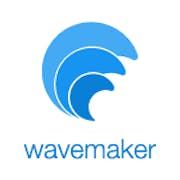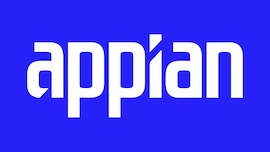Introduction to Application Development Software
Are you in the market for new application development software? With so many options available, it can be overwhelming to choose the right one for your business needs. Whether you're a small startup or an established corporation, selecting the right software can make a significant impact on your overall productivity and success. That's why we've created this buyer's guide to help you make an informed decision. From features and benefits to pricing and support, we'll cover everything you need to know to find the perfect application development software for your organization. So let's get started and find the right fit for your business today!
What is Application Development Software
Application Development Software, commonly referred to as app development software, is a suite of tools used by software development companies to create applications for mobile devices, desktops, and the web. This software is used to build, test, and deploy applications. Application Development Software allows developers to write code for an application using different programming languages, such as Java, Python, and C++. The software also provides debugging and testing tools to ensure the application runs smoothly across different platforms.
Here are some of the common use cases for Application Development Software:
- Mobile App Development: Application Development Software is widely used to build mobile applications for iOS and Android devices.
- Web App Development: The software is used to create web applications that run on web browsers.
- Desktop App Development: Companies use Application Development Software to create desktop applications for Windows or Mac operating systems.
- Game Development: The tools provided by Application Development Software are used to create games for different gaming platforms.
Various companies use Application Development Software to enhance their business operations, including software development firms, gaming companies, and financial institutions. Startups that offer a technological solution for their customers' problems also use application development software to build a tailored solution for their clients. Application Development Software is also used by companies that seek to create customized applications for internal use.
In summary, Application Development Software is a suite of tools used by software developers to create applications for mobile devices, web, and desktops. It is widely used across different industries, including software development firms, gaming companies, financial institutions, and more, to build custom applications that cater to their customers' needs.
Benefits of Application Development Software
Application Development Software (ADS) has become a critical component for modern businesses due to its ability to streamline operations, boost productivity, and increase profitability. With ADS, businesses can develop customized applications to cater to their unique needs and provide more value to their customers. Here are the main benefits of using Application Development Software:
- Increased Efficiency: ADS can automate many tasks that would otherwise require hours of manual labor, resulting in faster and more accurate completion of tasks. This not only saves time but also eliminates the possibility of human error, reducing the risk of costly mistakes.
- Cost-Effective: Developing an application from scratch can be costly, but using ADS can significantly reduce the development time and cost. Instead of hiring a team of developers, businesses can use ADS to develop their application in-house and reduce outsourcing costs.
- Enhanced Customer Experience: Customized applications developed with ADS can enhance the overall customer experience by providing personalized solutions that meet their specific requirements. This leads to increased customer satisfaction and loyalty, resulting in repeat business and positive word-of-mouth marketing.
- Competitive Advantage: Implementing ADS enables businesses to stay ahead of the competition by providing better services and solutions to their customers. Developing unique applications gives businesses an edge over their competitors, setting them apart in the market.
- Flexibility and Scalability: ADS allows businesses to develop applications according to their changing needs. Businesses can easily modify their applications to meet new demands, making them more flexible and scalable to adapt to future requirements.
- Data Integration: ADS helps in seamlessly integrating different data sources into a single application, making it easier to manage data and analyze it. This facilitates better decision-making and provides insights to improve business operations.
In conclusion, Application Development Software is an effective tool that can help businesses improve their operations, enhance the customer experience, and stay ahead of the competition. Its efficiency, cost-effectiveness, flexibility, and scalability have made it an essential component for businesses across industries.
Features of Application Development Software
In today's digital age, application development has become an essential aspect of business growth and innovation. Thanks to Application Development Software (ADS), businesses can rapidly develop and deploy applications that meet their specific needs. Here are ten common features of this technology:
- Drag-and-drop Interface: ADS offers a user-friendly, visual environment that allows developers of all skill levels to create applications by dragging and dropping the components they need.
- Code Sharing and Reuse: Many ADS allow developers to reuse and share code components, saving time and streamlining development.
- Built-in Security: ADS provides built-in security features that ensure applications are secure and meet industry standards.
- Collaboration: With ADS, multiple developers can collaborate on the same project in real-time, boosting productivity and reducing development time.
- Cloud Integration: Many ADS integrate seamlessly with cloud services, making it easy to deploy applications to the cloud.
- Cross-Platform Support: With ADS, developers can create applications that run on multiple platforms, including desktop computers, mobile devices, and the web.
- Low-Code/No-Code Development: ADS can enable low-code/no-code development, allowing developers with little or no programming experience to create applications quickly.
- Debugging and Testing: ADS provides automated testing and debugging tools that developers can use to catch and fix bugs and other issues.
- Analytics and Reporting: ADS often comes with built-in analytics and reporting tools that enable developers to track user behavior, app performance and monitor usage statistics.
- Scalability: With the ability to easily scale applications up or down, ADS ensures businesses can quickly respond to changes in market demand, user needs, or business growth.
In summary, Application Development Software is a powerful tool for businesses seeking to innovate, grow, and increase efficiency. With its many features, ADS supports fast and easy application development and deployment, enabling businesses to stay competitive in today's fast-paced digital environment.
Considerations of Application Development Software
When considering purchasing application development software, businesses must carefully evaluate their needs and goals to select a product that best meets their requirements. Here are some of the crucial factors that businesses should keep in mind when choosing the right application development software:
- Platform Compatibility: It is important to ensure that the software is compatible with the intended operating system, browser, and hardware. This will avoid issues with installation, upgrades, and integration with existing tools and systems.
- Ease of Use: The application development software must be intuitive and user-friendly so that developers can work efficiently without wasting time on learning complex toolchains. A simple and intuitive interface will also promote collaboration and reduce the learning curve for new team members.
- Customization Capabilities: Businesses use application development software to create unique applications that set them apart from competitors. Therefore, it is essential to choose software that offers customization options such as templates, UI components, and third-party integrations.
- Collaboration Features: Successful application development requires seamless collaboration among team members, stakeholders, and customers. Therefore, businesses must consider software that facilitates communication, feedback, and project management between team members in real-time.
- Security Features: The importance of security cannot be overstated in today's interconnected world. Application development software must have robust security features such as encryption, user authentication, and access control, to prevent unauthorized access and protect sensitive data.
- Flexibility and Scalability: Businesses must consider whether the software can adapt to changing needs and accommodate growth. As requirements evolve, the software must be scalable enough to handle increased workloads, data volumes, and user traffic without compromising performance.
- Cost: Lastly, businesses must consider the cost of the software, including licensing, maintenance, upgrades, and training. While lower-priced options may be appealing, they may lack essential features or pose compatibility issues; likewise, higher-priced options may be overkill for your needs, so it's important to find a balance.
In conclusion, selecting application development software is a decision that can have a significant impact on the success of a project and business. By considering the factors listed above, businesses can choose software that aligns with their needs, goals, and values, leading to greater agility, innovation, and productivity.
Software Trends for Application Development Software
Mobile application software is constantly evolving and developers are increasingly focusing their attention on improving user experiences by integrating new trends into their applications. One of the biggest trends in application development software for 2024 is the use of artificial intelligence (AI). AI-powered chatbots can provide personalized user interactions with the help of natural language processing (NLP) and machine learning (ML) algorithms [1]. Another trend is the integration of blockchain, which can help with traceability, data protection, and the creation of trustworthy decentralized applications [1]. Cross-platform development will also gain popularity, as it speeds up development, reduces costs, and enables developers to reach a wider audience without the need for separate codebases [1]. Finally, low-code development platforms are expected to disrupt the market, as they allow companies to build and even design their own software applications without the need for extensive technical skills [1]. These trends will continue to shape the future of mobile and application development software beyond 2024, allowing businesses to keep up with advancing technologies and provide better experiences for their users [1].<br/><br/><b>References:</b><br/><span>[1] <a href='https://mobidev.biz/blog/mobile-app-development-trends-key-features' target='_blank' class='text-purple-1 underline'>Mobile App Development Trends and Innovative Features in ...</a></span><br/><span>[2] <a href='https://www.foleon.com/topics/how-to-write-and-format-a-white-paper' target='_blank' class='text-purple-1 underline'>How to Write and Format a White Paper (With Examples)</a></span><br/><span>[3] <a href='https://quizlet.com/305385873/business-communication-final-exam-study-guide-part-1-2-flash-cards/' target='_blank' class='text-purple-1 underline'>Business Communication final exam study guide part 1 & 2</a></span><br/>









